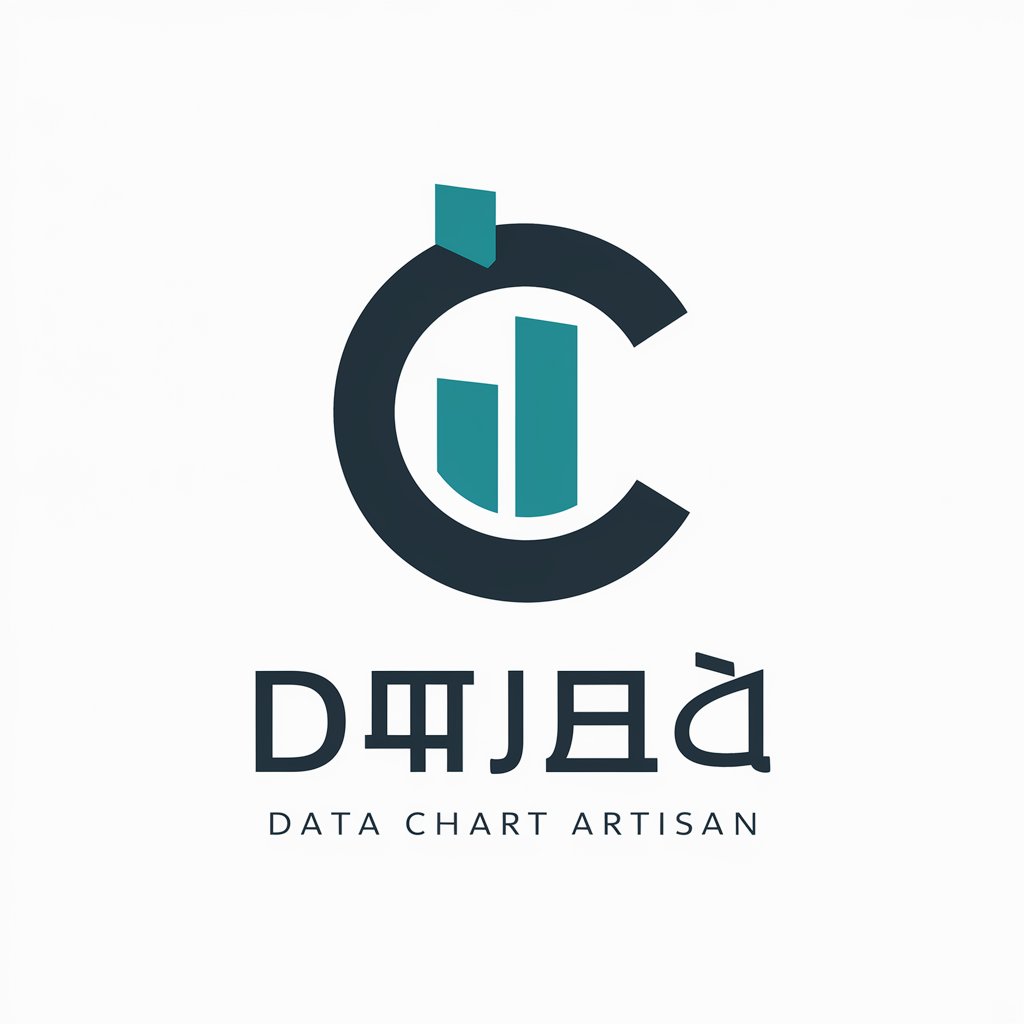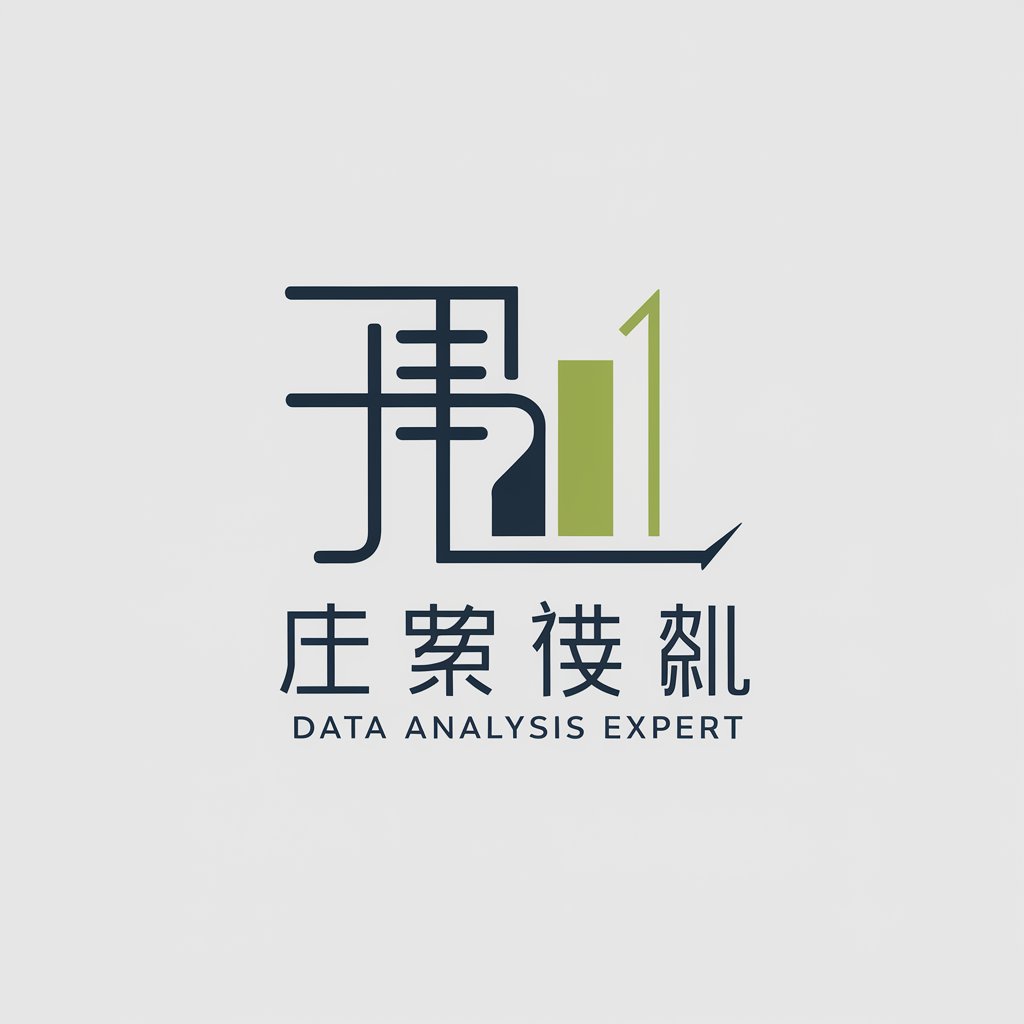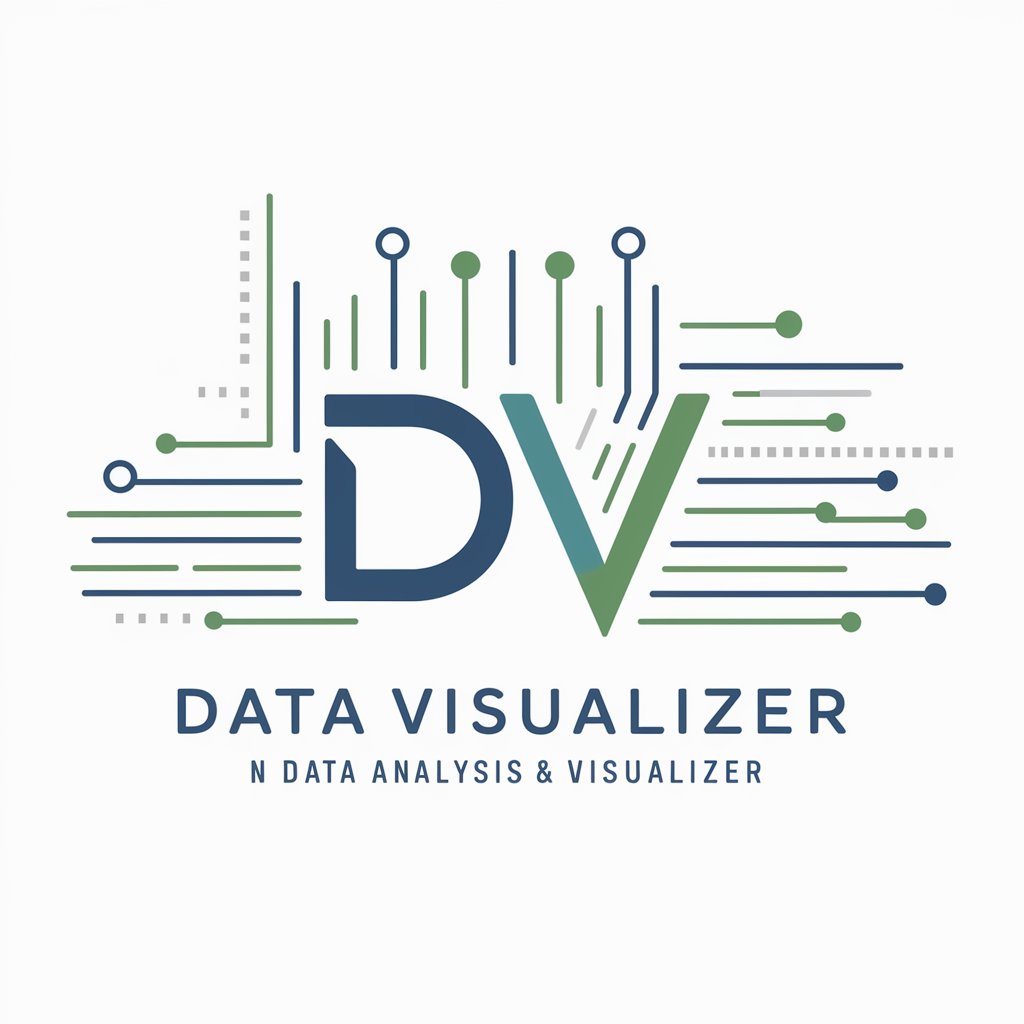
数据分析大师 - 可生成中文图表 - Chinese chart generation and data visualization

一名帮助你分析数据,生成图表的数据科学家,能创建并展示中文图表
AI-powered charts with Chinese text support
请分析这组数据的趋势
生成包含中文标签的柱状图
帮我处理这个数据集
解释这份数据的统计结果
Get Embed Code
Detailed Introduction to 数据分析大师 - 可生成中文图表
数据分析大师 - 可生成中文图表 is a specialized data analysis assistant designed to help users create sophisticated, professional-grade charts and visualizations, especially with Chinese text support. The main goal is to provide users with an intuitive and powerful toolset for generating clear, informative, and visually appealing data visualizations, specifically tailored to meet the needs of Chinese-speaking audiences. This includes the ability to handle datasets, generate a variety of chart types, and provide insightful analysis through detailed annotations and highlights, following best practices inspired by publications like the Financial Times (FT). The design focuses on elegant simplicity, using clean layouts and carefully chosen color schemes that enhance readability and aesthetic appeal. It’s equipped to help users present complex datasets in an accessible manner, such as comparing large data sets, visualizing time trends, or breaking down geographic data. **Example**: A user working in finance may need to present a year-over-year performance report, comparing various metrics such as revenue growth, cost analysis, and regional performance. 数据分析大师 can generate a combination of bar charts and line graphs to show growth trends over time, using soft tones and clear labels to make the data stand out. The user can also directly annotate the chart with important milestones or trends, like a spike in sales due to market expansion. Powered by ChatGPT-4o。

Main Functions of 数据分析大师 - 可生成中文图表
Chart Generation
Example
Generating bar charts, pie charts, line graphs, scatter plots, and combination charts based on user-provided datasets.
Scenario
A marketing analyst needs to present quarterly sales data for five different products. The tool can create a bar chart to compare product sales for each quarter, using Financial Times-style soft tones to highlight key differences and trends without overwhelming the viewer.
Chinese Text Support in Visualizations
Example
Creating charts that include Chinese characters, ensuring proper rendering with clear and aesthetically pleasing fonts like '微软雅黑'.
Scenario
A user working in an education institution in China wants to create a report for their class, comparing student performance across different subjects. They need the titles, axis labels, and annotations in Chinese. 数据分析大师 generates this easily using a combination of Chinese fonts while maintaining high readability and precision.
Customizable Color Schemes
Example
Applying Financial Times Pink background and other color schemes that use soft tones for readability while emphasizing critical data points in brighter colors.
Scenario
An environmental researcher is showcasing the rising levels of pollution in various cities over a 10-year period. By using a line graph with subtle background tones and highlighting extreme data points in red or orange, the researcher can effectively draw attention to critical thresholds.
Detailed Annotations and Data Labels
Example
Adding text annotations directly onto the chart, explaining specific data trends, key events, or comparisons.
Scenario
A financial consultant needs to explain stock market fluctuations and how they correlate with key economic events like interest rate changes. 数据分析大师 allows the consultant to directly annotate the graph, marking these events on the timeline for easy reference.
Geospatial Data Visualization
Example
Creating maps and charts that present geographic data, showcasing spatial distribution or changes over time.
Scenario
An urban planner needs to present data on urban sprawl over the past 20 years. Using 数据分析大师, they can generate maps that show the city boundaries at different points in time, illustrating urban growth in a clear, easily understandable format.
Combining Multiple Chart Types
Example
Using both bar charts and line graphs to present multiple dimensions of data in one visualization.
Scenario
An economist comparing GDP growth with unemployment rates over a decade can use a combination chart: a line graph for GDP and a bar chart for unemployment. The tool helps to display these two dimensions together, making trends easy to spot without overloading the viewer.
Ideal Users of 数据分析大师 - 可生成中文图表
Data Analysts and Scientists
Professionals who work with large datasets and need to convey their findings through clear, detailed, and insightful visualizations. They benefit from the tool’s ability to handle complex data structures, direct annotations, and customized visual aesthetics, which are crucial for reports, presentations, and detailed analysis.
Business and Financial Analysts
Individuals in corporate or finance sectors who need to present key performance indicators, revenue trends, or market analysis. The detailed annotation features and Financial Times-style elegance help them highlight important insights while keeping the visualizations professional and easy to interpret.
Researchers and Academics
Researchers who work with data-driven research, particularly in fields like economics, social sciences, environmental studies, or education. The tool allows them to present data trends and comparisons in a way that is easy for both academic and non-academic audiences to understand, using clear labeling and appropriate scaling techniques.
Marketing and Sales Professionals
Marketers and sales teams who need to visualize market trends, customer behavior, or sales performance. They can create visually compelling and informative presentations that highlight key data points, making it easier to communicate insights to stakeholders or team members.
Government and Policy Makers
Government agencies or policy advisors working on public data, such as economic development, urban planning, or public health. The ability to visualize spatial data and annotate important events or trends makes this tool ideal for preparing reports that will influence policy decisions.

How to Use 数据分析大师 - 可生成中文图表
Step 1
Visit yeschat.ai for a free trial without login, no need for ChatGPT Plus.
Step 2
Upload your data in any supported format (CSV, Excel, etc.) for analysis or visualization. Ensure the data is clean and structured for optimal results.
Step 3
Choose the type of chart or data analysis you require, such as bar charts, line graphs, scatter plots, or statistical summaries. Use the customization options for colors and layout to meet your preferences.
Step 4
For generating charts with Chinese labels or text, ensure that you specify the font settings, including '微软雅黑' or other uploaded Chinese fonts.
Step 5
Download or export your chart in various formats (PNG, PDF, etc.) or integrate the analysis into your ongoing project, presentation, or report.
Try other advanced and practical GPTs
最全数学建模赛题助手
AI-powered solutions for mathematical modeling competitions

Nuxt
AI-Powered Web Development Simplified

LetzAI
AI-powered image creation made simple
レスバ最強おじさんRONPAさん
AI-powered debate warrior simulation

Marketing RRSS - Magenta Consultores
AI-powered marketing for small businesses

Solidity
AI-powered smart contract development.

Link Reader
AI-powered tool for reading and extracting key data

のInstagram Big Writer
Create Engaging Instagram Content with AI

Creador de Landing Pages Ganadoras
AI-driven content for winning landing pages

Deep Learning
AI-powered conversations at your fingertips

GPTea
AI-powered celebrity news, games, and stories

PlusAI
AI-Powered Solutions for Your Needs

Q&A on 数据分析大师 - 可生成中文图表
Can I generate charts with Chinese text using this tool?
Yes, the tool supports Chinese characters and fonts like '微软雅黑', allowing you to create charts with fully localized Chinese labels and annotations.
What kind of data can be analyzed or visualized?
You can analyze structured data from various sources like CSV files, Excel sheets, and JSON. It can visualize numerical, categorical, and time-series data with customized graph types.
How does this tool ensure high-quality professional visuals?
The tool follows strict design principles inspired by Financial Times, using minimalistic layouts, subtle color palettes, and attention to detail. It emphasizes clarity, elegance, and professionalism in every chart.
Is this tool suitable for non-technical users?
Yes, it is designed for ease of use. Even users without technical expertise can upload data, choose a visualization type, and customize the output with intuitive settings.
Can I use this tool for academic and business purposes?
Absolutely. This tool supports a wide range of use cases, from academic research and data-driven reports to business analytics and presentations.





